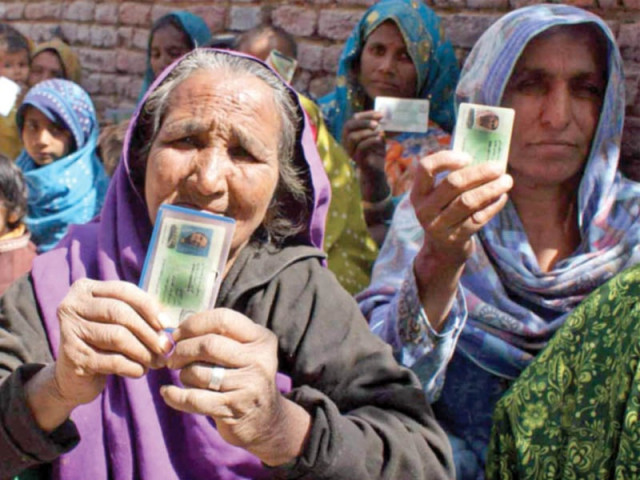Unfortunate stance
ECP's decision to ensure that atleast 10 per cent of women voters ballot is hugely welcome.

But unfortunately, the good intentions of the ECP have run into a hurdle. Sadly, after a meeting convened on September 27, leaders of major political parties opposed the 10 per cent requirement, citing reasons that bordered on the proposal being impractical and having social and cultural hindrances. It is unclear if any party, big or small, backed the ECP’s move. Such objections only go to show how, despite all the rhetoric we hear, political parties have little commitment towards uplifting the status of women in society. The parties have an obligation to battle against the ‘cultural’ and ‘social’ traditions that are being stated as roadblocks and by doing so, they are responsible for empowering women. There also seems to be a fear that the 10 percent ratio will not be met in some places, especially the conflict-hit tribal areas, leading to result annulments. Here, too, parties can play a role by making decisions which would enable women to vote and by holding talks with tribal chieftains and others with influence.
At a time when our political parties should be considering quotas within parties for tickets to be given to women, they are doing just the opposite. By reacting negatively, the mainstream parties have curtailed women from using their right to have a say in political decision-making.
Published in The Express Tribune, September 29th, 2012.














COMMENTS
Comments are moderated and generally will be posted if they are on-topic and not abusive.
For more information, please see our Comments FAQ